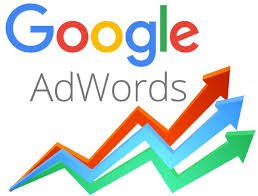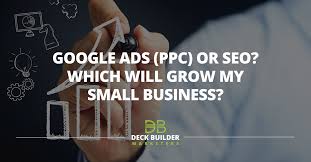Unlocking the Synergy of SEO and AdWords for Digital Success
The Power of SEO and AdWords in Digital Marketing
In the world of digital marketing, two key strategies stand out for driving traffic to websites and increasing visibility: Search Engine Optimization (SEO) and Google AdWords. While both aim to improve a website’s search engine ranking and attract more visitors, they work in different ways to achieve this goal.
SEO: Organic Growth Through Optimisation
SEO is the process of optimising a website’s content, structure, and backlinks to rank higher in search engine results pages (SERPs) organically. By focusing on relevant keywords, creating high-quality content, and improving user experience, SEO helps websites attract organic traffic from search engines like Google.
One of the key benefits of SEO is its long-term sustainability. Once a website establishes a strong organic presence through SEO efforts, it can continue to attract visitors without ongoing advertising costs. Additionally, users tend to trust organic search results more than paid ads, leading to higher click-through rates.
AdWords: Instant Visibility Through Paid Advertising
Google AdWords, on the other hand, offers a way to achieve instant visibility by placing paid ads at the top of search engine results pages. Advertisers bid on keywords relevant to their business and create targeted ads that appear when users search for those keywords.
AdWords allows businesses to reach a highly targeted audience based on demographics, interests, and search behaviour. With pay-per-click (PPC) pricing model, advertisers only pay when users click on their ads, making it a cost-effective way to drive traffic and generate leads quickly.
Combining SEO and AdWords for Maximum Impact
While SEO and AdWords are effective strategies on their own, combining them can amplify results and maximise visibility. By using AdWords data to identify high-performing keywords for SEO campaigns or retargeting website visitors with display ads after they’ve visited through organic search results, businesses can create a comprehensive digital marketing strategy that covers all bases.
Ultimately, the power of SEO and AdWords lies in their ability to work together harmoniously towards a common goal: increasing website traffic, improving search engine ranking, and driving conversions. Whether you focus on building organic authority through SEO or leveraging paid advertising with AdWords, integrating both strategies can help you dominate the digital landscape and achieve sustainable growth.
Maximising Online Presence: The Benefits of Combining SEO and AdWords for Effective Digital Marketing
- SEO helps improve organic search rankings over time.
- AdWords provides instant visibility at the top of search results.
- SEO drives long-term, sustainable traffic to websites.
- AdWords allows for precise targeting based on keywords and demographics.
- SEO builds credibility and trust with users through organic results.
- AdWords offers a pay-per-click model for cost-effective advertising.
- SEO enhances user experience by optimising website content and structure.
- AdWords can generate immediate leads and conversions through ads.
- Combining SEO and AdWords creates a comprehensive digital marketing strategy.
Exploring the Drawbacks of SEO AdWords: High Costs, Temporary Impact, and More
- 1. Costly
- 2. Temporary Results
- 3. Click Fraud
- 4. Ad Blindness
- 5. Limited Reach
- 6. Complex Management
SEO helps improve organic search rankings over time.
SEO plays a crucial role in enhancing organic search rankings over time, providing a sustainable and long-term benefit for websites. By strategically optimising website content, structure, and backlinks, SEO helps boost visibility in search engine results pages (SERPs) without the need for ongoing advertising costs. This gradual improvement in organic rankings not only increases website traffic but also builds trust with users who are more likely to click on organic search results. Ultimately, the consistent effort put into SEO yields lasting results that contribute to the overall success of a digital marketing strategy.
AdWords provides instant visibility at the top of search results.
A significant advantage of using AdWords in digital marketing is its ability to offer immediate visibility by placing ads at the top of search engine results pages. This instant prominence ensures that businesses can quickly reach their target audience when they search for relevant keywords, increasing brand exposure and driving traffic to their website. AdWords’ feature of displaying ads prominently can help businesses gain a competitive edge and attract potential customers efficiently in a fast-paced online environment.
SEO drives long-term, sustainable traffic to websites.
Search Engine Optimization (SEO) offers the valuable advantage of driving long-term, sustainable traffic to websites. By strategically optimising website content, structure, and backlinks, SEO helps websites rank higher in search engine results pages organically. This means that once a website establishes a strong organic presence through SEO efforts, it can continue to attract relevant visitors over time without the need for ongoing advertising costs. This sustainable traffic generated by SEO not only boosts website visibility but also enhances credibility and trust among users, ultimately leading to increased brand awareness and conversions in the long run.
AdWords allows for precise targeting based on keywords and demographics.
AdWords, a powerful tool in digital marketing, offers the advantage of precise targeting based on keywords and demographics. By strategically selecting relevant keywords and defining specific demographic criteria, businesses can tailor their ads to reach the most relevant audience. This targeted approach not only increases the chances of reaching potential customers who are actively searching for products or services but also helps in maximising the effectiveness of ad campaigns by focusing on individuals who are more likely to convert into customers.
SEO builds credibility and trust with users through organic results.
One of the key advantages of SEO AdWords is that SEO helps build credibility and trust with users by delivering organic search results. When a website appears at the top of search engine results through organic SEO efforts, users perceive it as more trustworthy and reliable. By ranking well in organic search results, businesses can establish authority in their industry and demonstrate their expertise to potential customers. This credibility gained through organic visibility complements the instant visibility provided by AdWords, creating a well-rounded digital marketing strategy that resonates with users and drives conversions effectively.
AdWords offers a pay-per-click model for cost-effective advertising.
AdWords provides a pay-per-click model for cost-effective advertising, allowing businesses to reach their target audience and drive traffic to their website while only paying when users click on their ads. This approach ensures that advertisers get value for their money by targeting specific keywords and demographics, making it an efficient way to generate leads and increase conversions without incurring unnecessary costs.
SEO enhances user experience by optimising website content and structure.
Search Engine Optimization (SEO) plays a crucial role in enhancing user experience by optimising website content and structure. By focusing on relevant keywords, creating high-quality content, and improving website navigation, SEO ensures that users can easily find the information they are looking for. A well-optimised website not only ranks higher in search engine results but also provides a seamless browsing experience for visitors, leading to increased engagement and satisfaction. This user-centric approach not only benefits the audience but also contributes to better search engine visibility, making SEO an essential tool for businesses looking to improve their online presence.
AdWords can generate immediate leads and conversions through ads.
AdWords, a powerful component of digital marketing, offers the distinct advantage of generating immediate leads and conversions through targeted ads. By strategically bidding on relevant keywords and crafting compelling ad copy, businesses can reach their target audience at the right moment when they are actively searching for products or services. This ability to drive instant traffic to a website and prompt users to take desired actions, such as making a purchase or filling out a form, makes AdWords a valuable tool for businesses looking to boost their online visibility and achieve quick results in terms of lead generation and conversions.
Combining SEO and AdWords creates a comprehensive digital marketing strategy.
By combining the strengths of SEO and AdWords, businesses can cultivate a comprehensive digital marketing strategy that leverages the long-term sustainability of SEO with the instant visibility and targeted reach of AdWords. This synergy allows for a holistic approach to online marketing, where organic growth and paid advertising work hand in hand to maximise website traffic, enhance search engine ranking, and drive conversions. The strategic integration of SEO and AdWords ensures that businesses can effectively engage with their target audience at various stages of the customer journey, ultimately leading to a more impactful and successful online presence.
1. Costly
Google AdWords can present a significant drawback in terms of cost, particularly when targeting competitive keywords. The bidding process for popular search terms can quickly escalate, resulting in substantial advertising expenses for businesses. This cost factor can pose a challenge for companies with limited marketing budgets, making it difficult to sustain long-term AdWords campaigns without incurring high financial outlays. As a result, the costly nature of Google AdWords can be a deterrent for some businesses looking to leverage paid advertising to boost their online visibility and attract targeted traffic.
2. Temporary Results
One notable drawback of using Google AdWords is the temporary nature of its results. Unlike SEO strategies that can yield long-term benefits and sustainable organic traffic, AdWords campaigns are dependent on budget allocation. Once the allocated budget runs out, the ads stop appearing in search results, leading to an immediate drop in traffic and visibility. This temporary nature of AdWords results highlights the importance of balancing short-term paid advertising with long-term SEO efforts to maintain a consistent online presence and maximise overall digital marketing effectiveness.
3. Click Fraud
One significant drawback of using Google AdWords for digital advertising is the issue of click fraud. Click fraud involves competitors or automated bots clicking on AdWords ads with the intention of depleting budgets without generating legitimate leads. This unethical practice can lead to wasted advertising spend and skewed performance metrics, ultimately hindering the effectiveness of AdWords campaigns. Businesses must remain vigilant and implement measures to detect and prevent click fraud to ensure their ad budgets are utilised efficiently and effectively in reaching genuine potential customers.
4. Ad Blindness
Ad blindness is a significant drawback of using AdWords in digital marketing strategies. As users become accustomed to seeing paid search results, they may develop ad blindness, leading them to ignore these ads altogether. This phenomenon can diminish the effectiveness of AdWords campaigns over time, as the ads fail to capture the attention of users who are increasingly adept at filtering out paid content. Marketers must find innovative ways to combat ad blindness and ensure that their AdWords campaigns remain relevant and engaging to maintain their impact in a competitive online landscape.
5. Limited Reach
One notable drawback of using Google AdWords is its limited reach when compared to broader SEO strategies. AdWords primarily targets users who are actively searching for specific keywords, which can restrict the audience reach to a more niche group of individuals. Unlike SEO, which can attract a wider range of organic traffic through various search terms and content, AdWords’ targeting approach may result in missing out on potential audiences who may not be actively searching for those specific keywords but could still be interested in the products or services offered.
6. Complex Management
Managing AdWords campaigns can be a challenging aspect of digital marketing due to its complexity and the need for continuous monitoring and optimisation. This process can be particularly time-consuming for businesses with limited resources, as it demands constant attention to ensure that campaigns are performing effectively. From keyword research to ad performance tracking, the intricate management of AdWords campaigns requires expertise and dedication to achieve desirable results. For businesses juggling multiple responsibilities, the intricate nature of managing AdWords campaigns can pose a significant con, potentially diverting valuable time and resources away from other essential tasks.

